This afternoon, YB and I went riding in the bush. I had made an effort last week to map up the villages nearby and learn their names, and as a result of it I can now tell you that we went from the outskirts of Zinder to the villages of Kasheni (whose name is somehow related to death, I have been told), Mandara, Dadin Serki and then all the way back again with an extra stop at the airfield, where the horses’ have their favorite gudu-stretch…

My favourite place on earth: In between the hills of Darin Serki and Mandara, where doom palm trees and acacias grow side by side in the deep, clean, beach-like sand with no civilization in sight! Unfortunately you have to be an experienced rider to get here, as it takes about twenty-five minutes of gallop each way.
We were out for more than an hour, and although YB does not speak a lot of French, we were talking most of the time (even when we were galloping side by side). I have really worked on my Hausa this year, and although I still feel it isn’t much, I am amazed at how many topics you can cover with so few words. It’s all about finding alternative strategies when you’re lacking a vital word. “Kagane?” (=Do you understand?) is a well used expression of mine, because when I do borrow a French word, I need to know that the other person understands. And YB is easy, because he’s very honest and let’s me know exactly when he has understood and when he hasn’t. At one point, I used the French word for “progress”, but YB did not know this word. I thought for a while how I would explain it, and then said “Before, Sahara had the work of a donkey but now she has the good work of a horse. That is progress. Do you understand?” And yes he did! At another point, we were talking about racing for fun, and he thought I should race with a jockey saddle. I tried to explain to him that I would not even be able to get up on a jockey saddle (much less remain on it!), but did not know the words for either ladder or balance (either could have helped me). So I just said, “I have problem a lot with a jockey saddle, I am no monkey!” And he laughed out load, mainly because by saying that, I was indirectly comparing him (and all the other jockey who just slip up and down the horses’ back with the most marvellous ease) to a monkey, but he understood that I was just trying to say that I did not have a jockey’s agility to get up on a nonexistent saddle which only seems symbolic in my eyes... So yes, I do not know a lot of Hausa words, but the words that I do know are used frequently. The hardest part I think is differentiating between similar words, when your mind just doesn’t remember (and after all my hajijiya – dizziness – lately, it’s been even harder to think straight). Was it huta (play) or hutu (rest) that Arwen had for three weeks? Banganeba (I don’t understand) or bansaneba (I don’t know)? Lots of ciwo (pain) or cizo (biting)? The outcome sort of depends on it!
So… The conclusion is that I now have a better understanding of what it’s like trying to communicate in a country where you don’t speak the language well! My choice is between avoiding Hausa altogether or not being afraid of making a fool of myself. And I’ll choose the latter, because with a little bit of Hausa, a few words of common French and lots of body language, you can cover the most amazing varieties of subjects, all it one outing… It just takes some patience from the listener and an effort from your side to constantly be on the look-out for alternative strategies, and voila, you develop your friendships!
Ishtar









































.jpg)

.jpg)














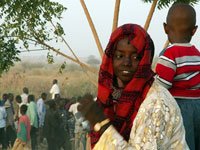







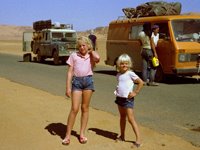
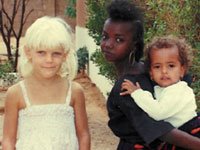


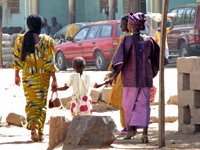
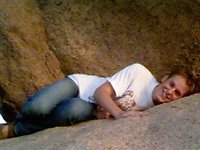
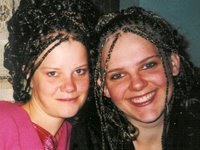
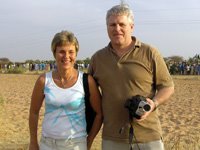
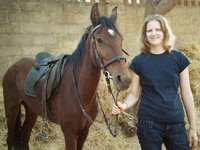
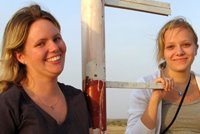
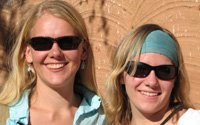



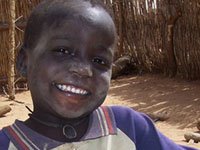
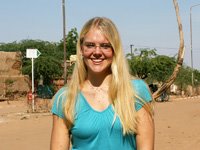
No comments:
Post a Comment